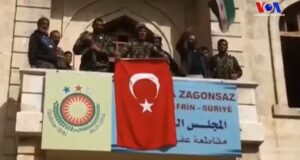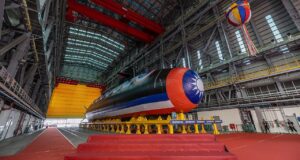Julie Lenarz, the Executive Director of the Human Security Centre, is quoted in the IB Times on terror financing.
Terrorism is funded in large part by the illicit industries, with the money made from things like drugs and human trafficking laundered through offshore shell companies and the financial system.
Figures from Global Financial Integrity estimate that the size of the global illicit flow of goods, guns, people, and natural resources is $650bn (£410bn, €521bn).
One of the groups cashing in on the illicit market is the Islamic State, also known as Isis, a self-declared theofascist caliphate stretching across parts of Syria and Iraq.
It smuggles oil, uses extortion on those under its control, receives donations from wealthy individuals in Arab states such as Qatar and Saudi Arabia. It claims ransoms for people it has kidnapped and loots precious Middle East antiques to sell to private collectors.
The rich donors of Isis, the oil billionaires of the desert, are likely to have access to the international financial system through which they can make then extract money for the pursuit of Islamic terrorism.
As well as funding the military and terror operations that have seen it seize control of major towns and cities, it is trying to establish a functioning state – and that costs a lot of money. There are around eight million people living under the tyranny of the Islamic State, the wealthiest terror organisation in the world which is thought to make as much as $2m a day.
“The money is used to pay the salaries of their fighters, buy weapons and ammunition, and finance operations which have enabled the group to seize large swaths of territory in Iraq and Syria,” Julie Lenarz, executive director of the Human Security Centre thinktank, told IBTimes UK
“In return, with more territory comes more revenue and Isis ever more powerful.”
Because of its financial structure, Lenarz said it is extremely challenging to stop its flow of money. But it is still possible to block some of its funding channels.
“Al-Qaeda, Hamas, Hezbollah and other prominent terrorist organisations heavily depend on the generosity of wealthy donors to sustain themselves and finance their operations,” she said.
“A significant portion of their money is being processed via the international banking system and can be restricted by imposing traditional money laundering laws.”
Read full article.
 Human Security Centre Human Rights and International Security Research
Human Security Centre Human Rights and International Security Research




